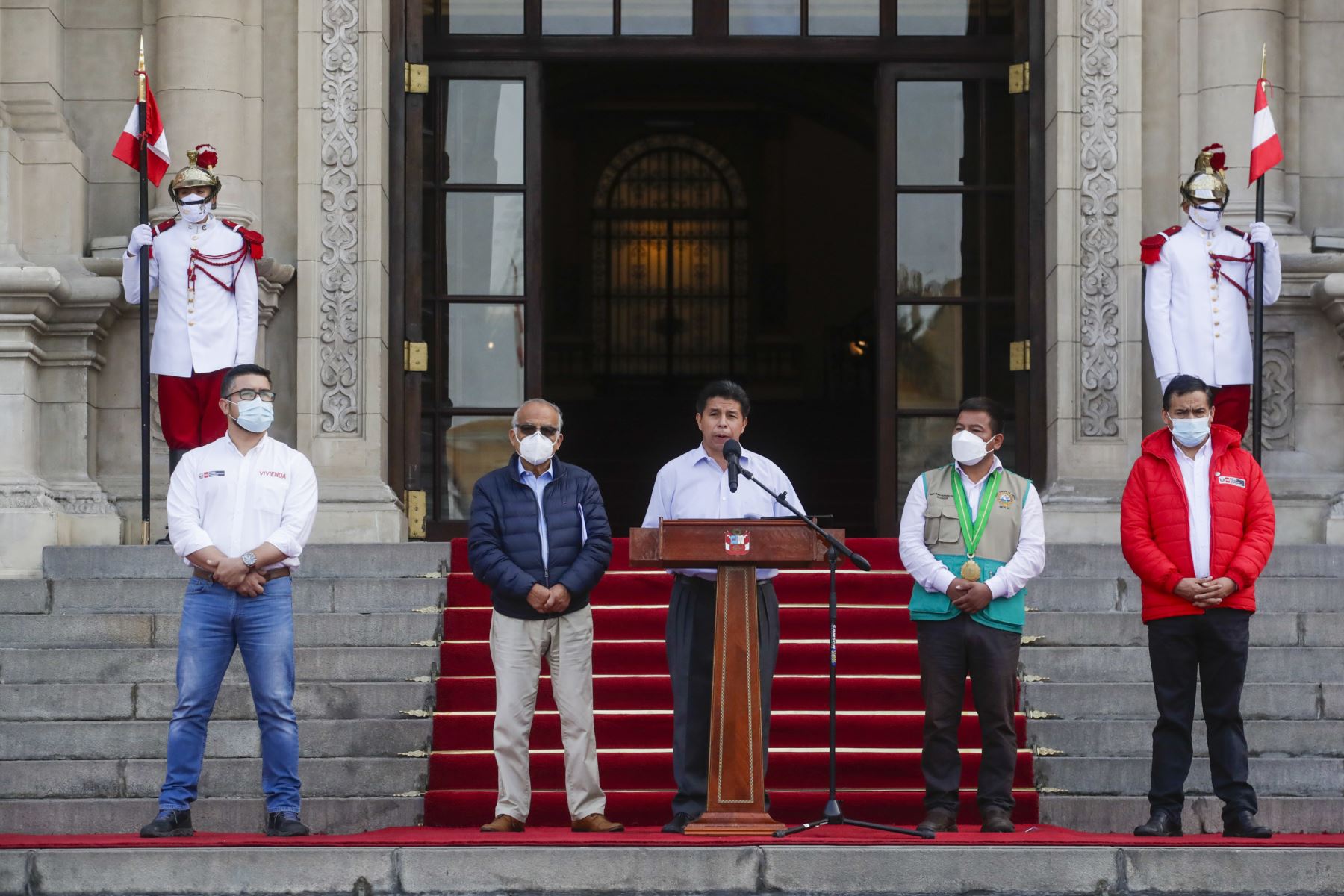:quality(85)/cloudfront-us-east-1.images.arcpublishing.com/infobae/CYCMI2KJJJEN7HFIPMXS3C3F3Y.jpg 420w)
The Peruvian government decided to temporarily suspend the consumption tax on major fuels, such as 84- and 90-octane gasoline and diesel types, to mitigate the rise in oil following a meeting between ministers, led by Premier Aníbal Torres, with the transport and farmers' guilds following the protests in Huancayo, in the Junín region.
The Ministry of Economy and Finance (MEF) amended the new Appendix III of the Single Ordered Text (TUO) of the General Sales Tax (IGV) and Selective Consumption Tax (ISC) Act and excluded fuels until the end of June of this year.
“This measure, I am sure, will help the Transport sector and thereby prevent the increase in prices of basic necessities that has been affecting Peruvian families,” President Pedro Castillo said when he announced the decree during a ceremony in the Courtyard of Honor of the Government Palace.

The head of state stressed that the increase in fuel prices is not the fault of the government, but that there are external factors such as Russia's invasion of Ukraine. In addition, he recalled that it is not possible to intervene in price control because the social economy of the market is governed in Peru.
For his part, the president of the Council of Ministers, Aníbal Torres, asked the taps of the country to act in accordance with this measure in a manner immediate. “We call on taps to act in accordance with the standard that they cannot use the pretext that they have stock and that they will still conform to the standard when their stock ends,” he said.
Peru recorded inflation of 1.48%, the Peruvian government reported. This is the highest monthly rate in 26 years after the rise in fuel and food prices of basic necessities led to protests in Huancayo.
ANNOUNCEMENT OF THE MINISTER OF ECONOMY
At the meeting of ministers and transport and farmers' unions last Saturday, the Minister of Economy and Finance, Oscar Graham, pointed out that the increase in fuel and food is responding to an international crisis, which mainly impacts people with reduced resources.
“The Ministry of Economy and Finance is taking the decision, together with the Council of Ministers, to reduce, exonerate, the payment of the selective consumption tax on fuels by 90%, through a supreme decree that we can take out this week,” he said at the Wanka Coliseum where a truce has been reached until the Thursday, April 7.
The Minister of Economy explained that the reduction in the CSI will generate lower revenues for the tax fund, in an amount of approximately 250 million soles per month (a little more than 67 million dollars) and a permanent evaluation of the price of fuels will have to be made to return to the full collection of the aforementioned tax when the situation is normalized.
The rule establishes its validity until June 30, 2022, but could be extended for a maximum of six additional months, “after assessment of the evolution of the international oil price and its impact on domestic prices”.
KEEP READING
